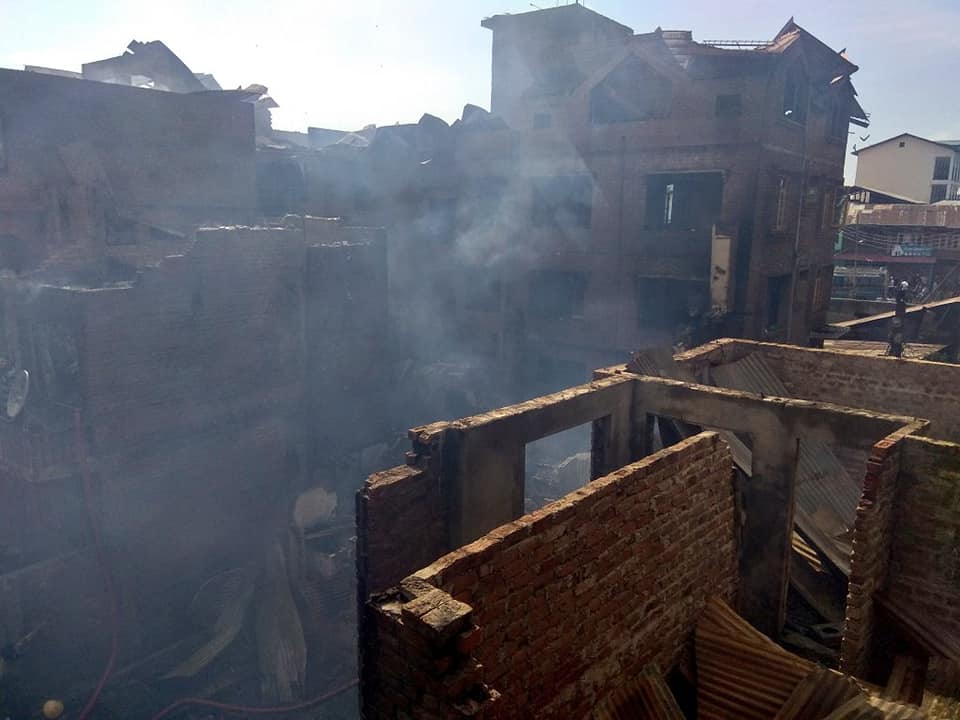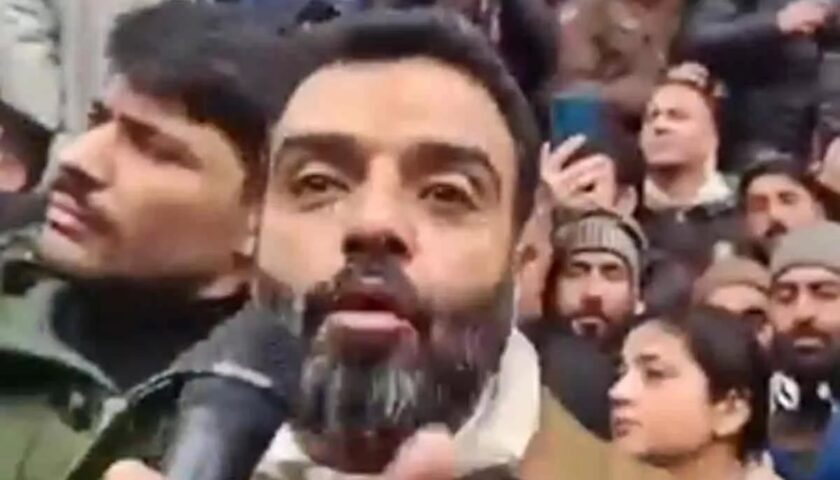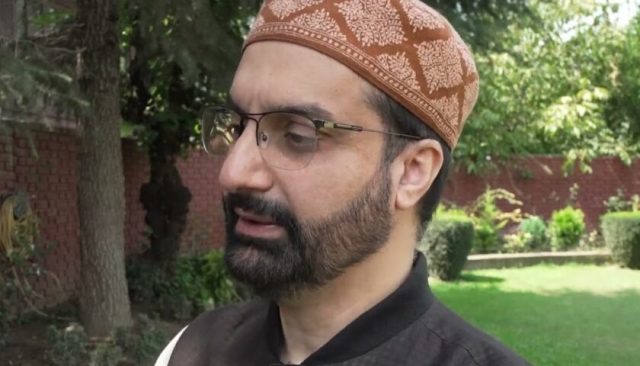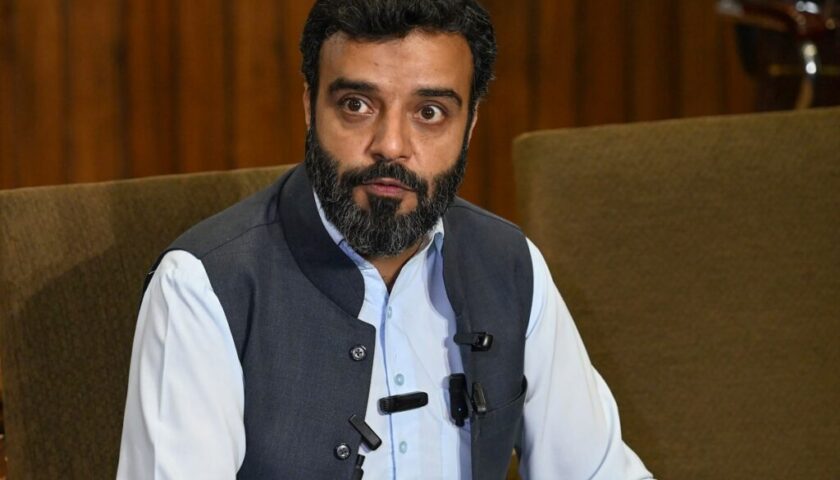By : Tahaa Yaseeen
- Scores of houses razed down
- 3 CRPF men, 1 Cop injured in the firefight
- 4 Youths injured after damaged structure collapses
- Internet, phone services cut
- 240 Rebels active, 73 killed this year: DGP
Two Hizbul Mujahideen rebels including Junaid Ashraf Khan ‘Sehrai’ whose father is chairman of the separatist conglomerate Tehrek-e-Hurriyat, were killed on Tuesday after a 15-hour long gun battle with forces in a densely populated area in downtown Srinagar, officials said.
A senior police official said the gunfight raged between rebels and forces at around 2: 40 am at Kanemazar Nawakadal area of Srinagar following a cordon and search operation in the area.
The cordon and searches were launched following intelligence about the presence of rebels there, he said.
During the search operation, the hiding rebels opened fire which was retaliated by forces triggering a gunfight.
The officer said after the initial exchange of gunfire there was lull during the darkness.
However, the gunfight resumed in the morning and in the ensuing firefight two rebels were killed.
The deceased rebels were identified as Junaid Ahmed Sehrai, divisional commander Hizbul Mujahideen and his associate Tariq Ahmed Sheikh resident of Pulwama.
The duo was associated with Hizbul Mujahideen.
“Two weapons were also recovered from the site of gunfight,” a police spokesman said.
Three paramilitary CRPF personal and Policeman of Special Operations Group were also injured in the gunfight. They undergoing treatment at Army’s 92 base hospital at Badamibagh, Srinagar.
Sehrai was younger son of Tehreek-e-Hurriyat chairman Mohammad Ashraf Khan (Sehrai), a resident of Tekipora Kupwara district.
It is the same village from where a PhD scholar Manan Bashir had joined Hizb in January 2018 but was killed in an encounter at Shatgund in Handwara October in 2018.
Sehrai family presently resides at Baghat, Barzulla in Srinagar.
Several houses were damaged in the gunfight.
The area was sealed with the extra deployment of forces to prevent protests or stone pelting during the anti-militancy operation.
His rebel associate Tariq had joined rebel ranks in March this year.
According to reports, the gunfight triggered mild clashes between the forces and civilians.
Authorities suspended phone and internet services in Srinagar district as a measure to avoid any hindrance during the anti-militancy operation.
Director-General of Police Dilbag Singh said Sehrai mostly remained active in Budgam, Pulwama, Shopian, and Srinagar.
“He was active in half a dozen cases including attacks on forces, threatened civilians. He was Hizb’s divisional commander for central Kashmir,” the police chief said in a news conference here.
Singh said effort from forces’ was to keep Srinagar peaceful but rebels were attempting to disturb peace in the city.
He said at least a dozen persons have been arrested for their involvement in grenade attacks in Srinagar.
The police chief said overall 13 to 14 rebels were active in central Kashmir.
He said the number of active rebels was dynamic in the Valley.
“However, around 240 rebels are active in the valley,” Singh said adding that number has come down compared to what it was, in the beginning, this year.
He said 73 rebels of different outfits have been killed while 95 rebels and their associates have been arrested in Kashmir so far.
Internet, phone services cut
As the gun battle raged, authorities cut off most mobile internet and voice call services in Srinagar, a common Indian tactic when fighting erupts in the region.
Defying the lockdown, locals poured onto the streets as news of the killings spread.
Scores of young men chanted anti-India and pro-rebel slogans and hurled stones at government forces, who fired tear gas and shotgun pellets to disperse them. No injuries were immediately reported.
New Delhi has stepped up its counterinsurgency operations across Indian-administered Kashmir in recent months. Police said 73 rebels had been killed in the Muslim-majority region this year.
In April alone, more than two dozen rebels and about a dozen Indian troops were killed, the most in any month since August 2019, when India revoked the region’s semi-autonomous status and statehood and imposed direct federal rule.
On Sunday, a rebel and a soldier were killed in a gun battle in the remote Doda area.
Unlike in the past, authorities now bury slain rebels far away from their homes in unpopulated frontier areas to stop large funerals from being held.
The rebels have also continued their attacks on government forces and alleged informants amid the coronavirus pandemic, with almost daily fights along the rugged and mountainous frontier that divides Kashmir between India and Pakistan.
Kashmir’s rebel groups have fought for decades for the region’s independence or its merger with Pakistan, resulting in nearly 70,000 deaths, mostly civilians, since 1989 when an armed uprising began.
India accuses Pakistan of arming and training the anti-India rebels. Pakistan denies this, saying it offers only moral and diplomatic support to the rebels and to Kashmiri civilians who oppose Indian rule.




